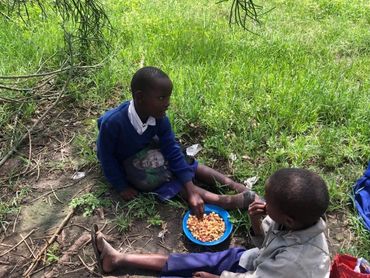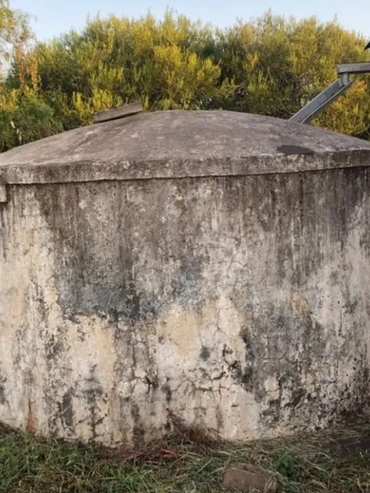The Arkatani Primary School, Tanzania Africa
Overview

The Maasai were nomadic people who followed the seasons, food sources, and of course, accessibility to water. In the 20th century, the Maasai people were relocated to the outskirts of cities and conservation areas. The Arkatani Primary School predominantly serves Maasai children.
The Ladybug Project has partnered with the Arkatani Primary School in the Monduli District of the Arusha Region in Tanzania. The goals of the Arkatani Primary School initiative are multifaceted, addressing key areas of need including nutrition, facilities improvement, and strengthening educational systems.
Primary education is crucial to the development and success of children worldwide, but especially in areas such as Africa, where many live in poverty and economic resources are limited. The Arkatani Primary School serves just under 700 children. There are approximately 8 teachers and an administrator. These staggering teacher-to-child ratios place an undue burden on the staff and foster an educational environment that is not only a challenge to learning, but is unsustainable.
Like many schools in Africa, the Arkatani Primary School suffers from a lack of government funding for educational resources such as books, desks, writing materials, trainings for staff, updated curriculum, and technology. Nutrition is another concern, with many students having insufficient access to food and water during the school day. The school infrastructure is also in need of updates and repairs.
Since the Ladybug Project started in 2024, enrollment for the preschool/kindergarten class has increased from 104 to 150 students and the national exam passing rate for the graduating sixth grade class has improved from 52% to 90%. This means more Maasai children are starting school and more are continuing on to secondary school!
Nutrition Program

There is nothing more basic to survival and growth than food and water. Without proper nutrition and food in their stomachs, there is little hope for the future of our children.
In April of 2024, North End Montessori School and the Ladybug Project partnered to start the Nutritional Program at the Arkatani Primary School. Access to food, water, and cooking facilities were priority. Thanks to their efforts, one meal per school day is served to the Maasai children, who were previously arriving to school hungry and thirsty, often having little or nothing to eat or drink all day.
The Ladybug Project helped the students plant beans, which they harvest themselves. A water retention pond and a drip irrigation system would improve crop yields. The Ladybug Project also replaced the broken fireplaces in the school kitchen. Resident teachers had been waking up at 2:00 am to start fires on the concrete floors to cook the students' meal in large cauldrons. Now with their rebuilt kitchen and new cauldrons, they start cooking when the school day begins and are not breathing smoke from the open fires.
Water was so sparse that children were crawling down into old and broken cisterns to skim muddy water from the bottom. There was no reliable source of water for drinking, let alone for hygiene. Cisterns were rebuilt to store water collected during the rainy season, but more are needed to reduce the need for and expense of water deliveries. Water is crucial for drinking, hygiene and cooking. A greater volume of food and water is needed and can be provided with additional financial support. Join the effort today!
Facilities and Infrastructure

The Arkatani Primary School was built in the 1970s by the government for Maasai people who faced relocation and settlement. Since then, the buildings and facilities have suffered an ongoing lack of maintenance and repairs. Due to underfunding and insufficient resources, the government has been unable to adequately support the school.
In order for the educational programming to function and progress, the physical environment must be improved. The buildings and structures are in varying conditions: one classroom block needs a complete rebuild due to structural issues; some of the teachers' living quarters are abandoned due to disrepair; and many of the other classrooms are in use, but are minimally adequate due to crumbling concrete walls, broken windows, chipping paint, rusted roof panels, and compromised flooring. While much work has been done, there is much more to do.
Toileting and personal hygiene is of concern not only as a public health prospective, but also as an infrastructure issue. There is no running water on the premises for cleaning and handwashing. The bathrooms for male and female students are pit latrines, known as outhouses in the United States. Each has four stalls, which are not enough for nearly 700 students. Some lack doors for privacy and there is no water for cleaning or personal hygiene such as handwashing in the latrines.
Access to potable water for consumption and hygiene is a critical ongoing challenge at the Arkatani Primary School. The Ladybug Project had holes bored for a water well, but the effort had to be abandoned due to subsurface structural issues that could not be overcome with the well drilling equipment currently available in Africa.
To provide an alternative water supply at the school, old and broken water cisterns were repaired in the Spring of 2024. Gutter systems on school buildings fill the cisterns during the rainy season. However, there are not yet enough cisterns to supply water through the dry season.
Education -- Montessori Pilot

The Ladybug Project, under the direction of Susan Bradley, has received approval from the the board of education in the Monduli District to launch a Montessori pilot program at the Arkatani Primary School and to perform much needed and long overdue maintenance and repairs to the classroom blocks. The renovations will also help support the Montessori environment and pedagogy.
The Ladybug Project believes that bringing Montessori education to the Arkatani Primary School will improve the quality of education and unburden the teachers by having older students assist in teaching their younger peers. The Montessori philosophy of child-directed work instead of exclusive teacher instruction will help offset the teacher shortage. It will also help reinforce understanding of the educational lessons, allow for student leadership, and instill confidence in the teachers, students, families, and community.
After visiting the one of a few Montessori schools in Arusha, the Faraja Young Women Development Organization, for an observation, a representative of the department of education in the Monduli District commented, "We have learned a lot from this experience, and I am now convinced that a child can indeed be independent in the learning process." The Ladybug Project also sent teachers from the Arkatani Primary School to the Faraja Young Women Development Organization to observe a Montessori classroom.
There is much excitement at the prospective partnership and potential opportunities.
What We Have Achieved
The work of the Ladybug Project is meant to be long-term and ideally sustainable through the education and efforts of the local leaders and community.
- Providing one meal per day for almost 700 students with food procured from local vendors
- Installed potable water stations for drinking and cooking
- Surveying, testing, and attempted drilling for a water well on-site
- Improving access to water by repairing 7 cisterns and the gutters filling them during the rainy season, as well as water deliveries by tanker truck when needed
- Rebuilt kitchen and purchased new cooking stoves and cauldrons
- Repaired and painted exteriors and interiors of classroom blocks
- Fixed holes and cracks in the floors and walls of classrooms
- Replaced broken windows and shutters
- Started refurbishing part of teacher housing
- Installed handwashing stations near classrooms and latrines for basic sanitation
- Purchased soccer balls for recess for boys and girls
- Sponsored and coordinated an initial teacher training on Montessori
What We Still Need

There is still so much work to be done and YOU can help support our ongoing initiatives!
- Source funding to sustain and expand the Nutrition Program in the long-term
- Create an efficient agriculture and gardening program, including enhancing water supply for this specific purpose
- Develop an animal husbandry program to provide a food source and economic opportunity
- Rehabilitate and build more teacher housing to help retain staff, attract new staff, and house volunteer teachers
- Continue to repair and maintain existing facilities
- Expand the Montessori Pilot program with a second classroom, furnishings, Montessori intern teachers, and housing for the interns
- Provide classroom equipment such as desks, tables, chairs, work rugs, shelves, chalk boards, basic school supplies
- Replace worn out school uniforms, including a set of shoes for each child
- Purchase more Montessori materials
- Procure administrative/office equipment, supplies, and technology such as computers, printer, ink, paper, etc.
Nutrition Program -- The Ladybug Project Feeds Children with Food and New Kitchen
.jpg/:/cr=t:0%25,l:0%25,w:100%25,h:100%25/rs=w:370,cg:true)
.jpg/:/cr=t:0%25,l:0%25,w:100%25,h:100%25/rs=w:370,cg:true)


Facilities and Infrastructure


Educational -- Students and Teachers Looking Forward to the Montessori Pilot Program beginning in January 2026
This website uses cookies.
We use cookies to analyze website traffic and optimize your website experience. By accepting our use of cookies, your data will be aggregated with all other user data.